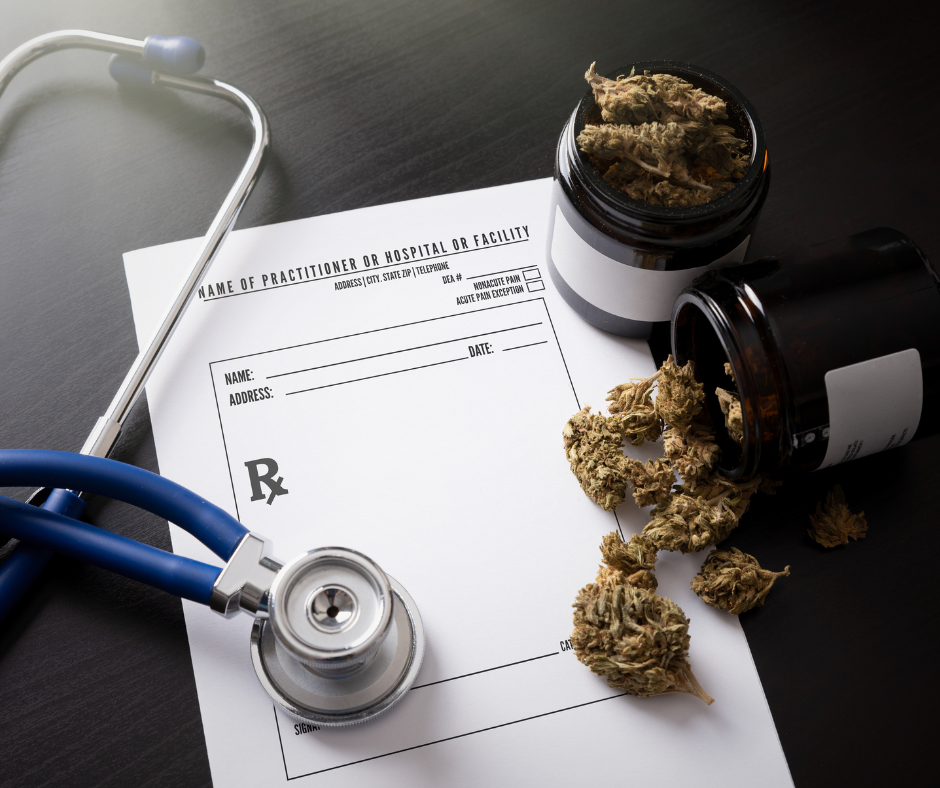What Conditions is Medical Marijuana Used for?
As society continues to embrace alternative forms of medicine, medical marijuana has emerged as a treatment option for a variety of conditions. Medical marijuana, also known as medical cannabis, is a form of treatment that uses the compounds found in the cannabis plant to alleviate symptoms and to improve the quality of life for individuals with certain medical conditions. The active ingredients in marijuana, known as cannabinoids, interact with the body’s endocannabinoid system to produce a range of effects, including pain relief, nausea reduction, and appetite stimulation. At Aligned Medical Group, our medical marijuana doctors prescribe it for conditions like:
- Anxiety disorders and PTSD
- Neuropathies and chronic pain
- Epilepsy
- Crohn’s disease
- Spastic and dyskinetic movement disorders
- Inflammatory bowel disease
- Neurodegenerative disease
- Opioid use disorders
Can Marijuana be Used to Treat Chronic Pain?
Chronic pain affects millions of people worldwide and can be caused by a variety of conditions, including arthritis, multiple sclerosis, and fibromyalgia. Medical marijuana doctors have found that medical marijuana can alleviate pain and improve quality of life for people suffering from chronic pain. In addition, it can relieve pain and reduce inflammation while avoiding the use of addictive opioid pain relievers. It also has helped patients decrease nausea, improve their moods, decrease depression, and improve their overall quality of life.
Can Medical Marijuana be used to Treat Anxiety?
Medical marijuana doctors prescribe marijuana for their patients to help alleviate symptoms associated with anxiety, including post-traumatic stress disorder (PTSD). Medical marijuana has been shown to reduce anxiety and other symptoms associated with PTSD, while improving the quality of life for people suffering from the condition. Recent studies have suggested that CBD has decreased anxiety in all doses that have been tested. These studies have also shown that females are more likely than males to reap the benefits of medical marijuana for the treatment of anxiety. The data shows a great correlation between cannabis with high levels of CBD and THC as the most effective in managing anxiety.
Do Migraines Qualify for Medical Marijuana?
Migraine headaches are a challenging condition to treat. Medical marijuana offers a natural way to treat and manage this condition. Research points to a deficiency in the endocannabinoid system to be a leading cause of migraine headaches. Cannabinoids affect the receptors in your brain that feel pain and can also help reduce the symptoms of migraines such as nausea.
Can Patients Get Medical Marijuana for Neuropathy?
Medical marijuana doctors have found that marijuana is proven to be an effective treatment for peripheral neuropathy. Neuropathy is defined as the damage of nerves found outside the brain and spinal cord. Pain, weakness, and numbness are common symptoms of neuropathy; however, it can also negatively impact several other bodily functions. Medical marijuana has been found to reduce pain, improve sleep, and improve daily functions in patients. For individuals who suffer from this malady, cannabis has reduced inflammation and blocked some key neurotransmitters in patients. Medical marijuana is an effective, natural alternative to conventional pharmaceuticals to manage your neuropathic pain.
How do you Qualify for Medical Marijuana Use?
The qualifications of medical use marijuana varies by state. At the federal level marijuana consumption is still considered illegal; however, 36 states now legalize the use of medical marijuana. In Pennsylvania, there are four steps to qualify for medical marijuana use:
- Registration for the program through Pennsylvaina’s Medical Marijuana Registry.
- Certification from a medical marijuana doctor (a physician) that you suffer from one or more of the conditions that qualify for medical marijuana treatment.
- Purchase a medical marijuana ID card.
- Obtain medical marijuana from a state approved dispensary in Pennsylvania.
You need a valid photo ID and a qualifying medical condition, usually presented in the form of a written statement from your physician. You will then have a telehealth or in-person appointment with a registered medical marijuana doctor to receive approval for medical marijuana use.
What Kind of Doctor Can Prescribe Medical Marijuana
Much like the qualifications for patients, medical maijuana doctors who are licensed to prescribe are levied by each state. In Pennsylvania, physicians are required to meet the following requirements to prescribe medical marijuana:
- A medical marijuana doctor must hold a valid medical license for the state they practice and must be in good standing.
- The physician must be either a Medical Doctor (M.D.) or a Doctor of Osteopathic Medicine (D.O.).
- The doctor must be registered with the state that they are planning to recommend and/or prescribe medical marijuana.
While only registered physicians can prescribe or recommend medical marijuana treatments, any licensed doctor in Pennsylvania can write a recommendation for a patient to seek a medical marijuana ID card.
The Medical Marijuana Doctors at Aligned Medical Group can Prescribe Medical Marijuana to Treat a Variety of Conditions
At Aligned Medical Group we provide our patients with a holistic approach to solution-focused care. If you are fearful of the risks of mainstream pharmaceuticals, see one of our medical marijuana doctors. Do not let pain and anxiety ruin your quality of life! For more information about medical marijuana, contact Aligned Medical Group at (610) 644-3166 to schedule an appointment today.


